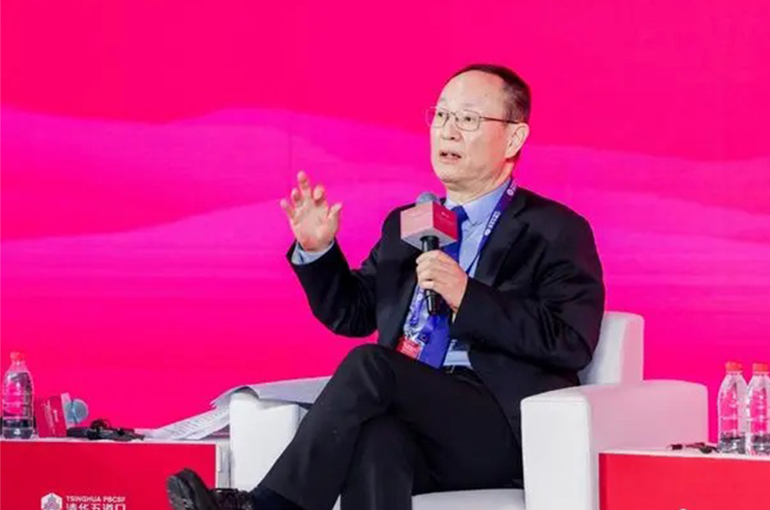 High Debt, Inflation Characterize Our Post-Covid World, Finance Forum Speakers Say
High Debt, Inflation Characterize Our Post-Covid World, Finance Forum Speakers Say(Yicai) May 27 -- The world economy is sliding into a situation where countries, businesses, and households are struggling with bigger debts while inflation accelerates, experts said at a finance forum hosted by China’s Tsinghua University.
Following the Covid-19 pandemic, the global economy has been showing signs of slower growth as well as higher inflation, interest rates, and debt levels as countries' liabilities near 250 percent of their gross domestic product, Wang Yiming, vice chairman of the China Center for International Economic Exchanges, a policy think tank, said today at the 2024 Tsinghua PBCSF Global Finance Forum.
The two-day forum marks the 80th anniversary of the Bretton Woods Agreement that created the post-Second World War monetary order between the United States, Europe, and Australia.
As high inflation, debt, and interest rates intertwine, debt risks have grown and if not effectively dealt with could affect the stability of the financial markets and hinder the global economic recovery, said Wang, who is also a former vice minister of the Chinese State Council’s Development Research Center.
The debt level is on the rise, said Zhang Tao, chief representative for the Asia Pacific region at the Bank for International Settlements. Total debt -- corporate, household, and sovereign -- is at an all-time high, he pointed out.
“We need all central banks to collaborate and take concerted steps to curb global inflation,” Zhang said, emphasizing the role of the Basel-based BIS.
The world is in a difficult period with slow economic growth, elevated interest rates, and high inflation, Michael Spence, a co-recipient of the 2001 Nobel Memorial Prize in Economic Sciences, said by video link.
The technological world offers powerful tools, and most are open-source, while costs are gradually coming down, said Spence, an emeritus professor at Stanford University. The only concern is whether humans can use them to drive beneficial and sustainable growth, he said, adding that future investment may mainly target intangible assets such as data, software, and various capabilities.
The world is facing unprecedented uncertainties, including financial and monetary, socio-political, geopolitical, demographic, technological, and environmental, according to Nouriel Roubini, emeritus professor at New York University Stern School of Business.
Artificial intelligence, automation, and machine learning are changing the world, which could boost the economy, but not without risks, said Roubini, who is also chief executive of consultancy Roubini Macro Associate. There will be winners and losers, he noted.
The world urgently needs global cooperation to address these issues to ensure financial stability and tackle climate change, Roubini noted. But the planet is fraught with all sorts of divisions and rivalries, making international collaboration very challenging, he added.
Editor: Emmi Laine